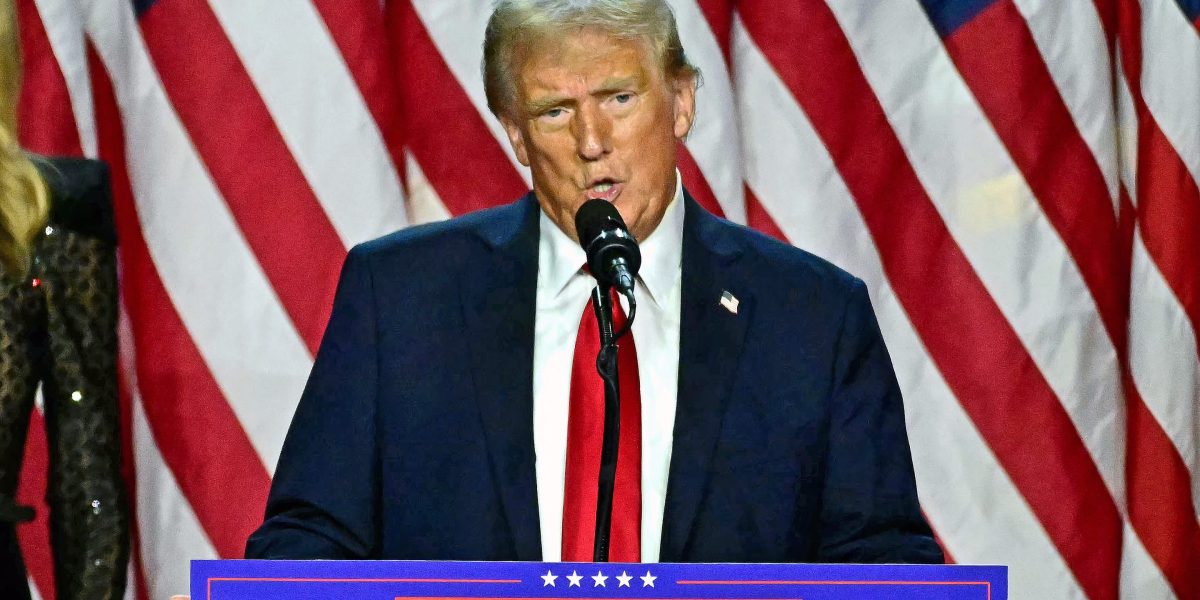It’s crazy how so many GOP supporters didn’t know this…
No shit.
This is literally in the first paragraph of every economics textbook when they talk about tariffs.
Removed by mod
Nobody who voted for Trump read[s]
that book homie.Fixed that for ya
42% of college graduates reported never reading another book. Not. A. Single. Book!
Fuck Walmart.
How about “fuck the idiot who thinks tariffs are paid for by anyone except the consumer.” Your money is going to be worth a lot less over the next 4 years because a moron doesn’t understand how tariffs work.
Nah, we should be paying tarrifs from goods imported from countries with terrible labor laws.
But we also need social services like UBI to provide free housing and food and clothing.
No matter how you slice it, it simply ends in America’s living with a “lowered” quality of life. The reason we buy things from overseas is because it was cheaper and nobody wanted to pay for the expensive American version. Even the current high-end American products we have will find themselves struggling when people have to pick and choose what they can afford going forward.
I’m also a little indifferent about the whole thing. I just think its going to be hilarious if it goes down and people end up struggling even more after voting Trump. I’ll have my schadenfreude-popcorn ready constantly to munch on over the next four years.
Lowering your quality of life when that wealth is stolen, built on the backs of oppressed people, or causing climate change is both necessary and just
I feel you, but also, they’ll have less money too. Some of them will lose jobs and go hungry in the interim, and I’m not going to try to argue where the “appropriate” starvation balance is. But it -will- happen.
Yes. We will pay for the tariffs.
American companies will pay for the tariffs, and then we the consumers who buy their products will pay for the tariffs via price increases.
This is money that we will invest. It is a tax. It is the government causing us to spend more money.
It is not a usual tax in the sense of money paid to the IRS. But it is an economic cost that we will pay in order to support a government policy.
The cost is paid to enact a certain outcome. The outcome is less importing of goods, and more of those goods being provided by sources within our borders. It will cost money to make this change. That cost will be paid by us.
We are being forced to pay money to enact a policy. That’s how it’s essentially a tax.
Except this policy is basically:
- More stuff that American consumers consume, will come from American companies
- There will be more manufacturing capability to meet this demand
- There will be more demand for American labor, improving the lives of American workers
- We will be more militarily capable due to being able to build more things in-house
That is a set of changes being targeted by this policy. We will pay for this policy by paying higher prices. The intention, the hope, is that the policy will pay for itself in terms of the third bullet point: more manufacturing in America means more jobs for Americans. More demand for American stuff means better bargaining position for American workers, means more income.
In the short term it’ll suck. Just like any other heavy tax can suck in the short term, before the benefits can manifest and make it worth it.
This was tried under Trump the first time and it was an abject failure.
Trump’s tariffs raised the price of foreign made dishwashers by 20%. American manufacturers also jacked up the cost of their appliances, in order to match that price that customers were paying. As a result there was no incentive to change consumer behavior and there was no boost in “buying American.”
The I voted for him for cheaper eggs crowd are about to call this fake news.
Realistically though, that’s how tariffs just work. With products costing more, theoretically that should drive demand down and eventually lead to fewer imports. Of course, if there’s still no competing product or the product is a basic necessity, then it’ll likely just result in people paying more.
We tried this in 2017. Trump put tariffs on dishwashers, and American companies just raised their prices to match, pocketing the difference.
Yah, I mean realistically, I can only really see tariffs working if a nation is trying to enter an industry. That’s not the case here, but even so, these tariffs differ from the ones you mentioned because they would be against Chinese imports rather than a specific product, so I can’t imagine there’s as much risk of that sort of market manipulation from happening again… but then again, I’ve got no idea.
If you’ve got no idea then why argue?
There isn’t a competition in the market between Malaysian washing machines vs Chinese washing machines, in reality the tariffs will affect Chinese goods mainly, and any industry will raise prices to pocket the difference as we saw in the above example. It was more than just a single appliance that raised the prices.
Nobody here is surprised.









